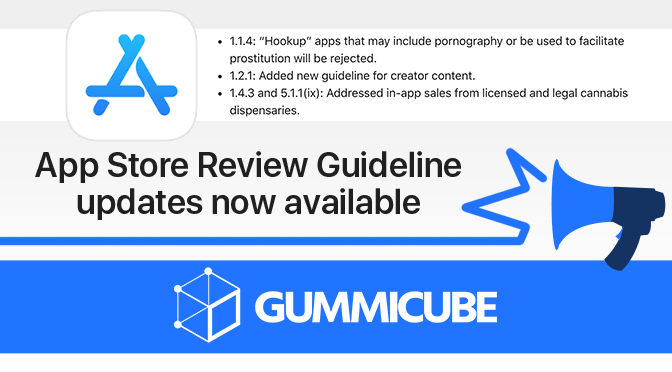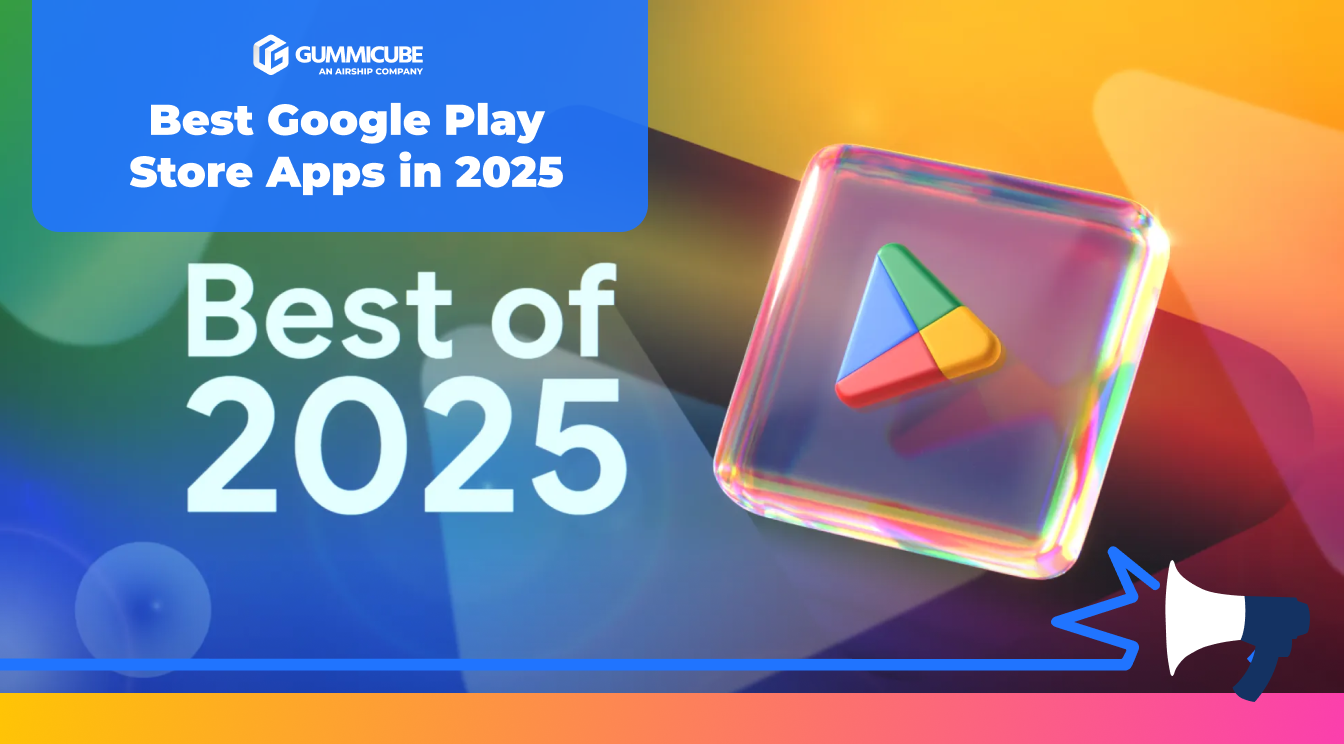
Wake Locks and How it Could Change Your ASO Strategy
Posted on December 10th, 2025
App developers have a limited window to identify wake lock issues, strengthen their performance, & protect their long-term visibility in the Google Play Store.

Following the WWDC21 Keynote Event on June 7th, Apple released changes to the App Store Review guidelines that developers must adhere to when submitting new apps or updating existing apps. Some of these changes are minor usage and clarification revisions, while others cover larger updates to address legal concerns and crack down on spam apps.
Regardless of the size or scope of alterations to the existing App Store Review guidelines, it is crucial for developers to review changes and stay up to date on Apple’s current guidelines to keep apps in compliance and prevent loss of profitability or suspension of their Apple Developer account.
While the majority of the event focused on new features for users and tools for developers and marketers, illustrated in the below video-style word cloud of changes coming soon, Apple made several critical behind-the-scenes updates to policies developers need to be aware of.

Apple clarified their stance on sexual themed apps in section 1.1 “Objectionable Content.” Section 1.1.4 “Overtly sexual or pornographic material[...]” has been updated by adding:
[...] This includes “hookup” apps that may include pornography or be used to facilitate prostitution.
This is an important clarification to keep in mind for more innocuous dating apps. Developers of these apps should be careful of the language used to describe their apps, avoiding terms like “hookup” in ways that could be found by a reviewer to be in violation of 1.1.4.
In the section entitled “Physical Harm,” Apple has updated restrictions on the sale of controlled substances to permit licensed cannabis dispensaries to operate where cannabis use is legal.
From:
1.4.3 [...] Facilitating the sale of controlled substances (except for licensed pharmacies), marijuana, or tobacco is not allowed.
To:
1.4.3 [...] Facilitating the sale of controlled substances (except for licensed pharmacies and licensed or otherwise legal cannabis dispensaries), or tobacco is not allowed.
Additionally, Apple added a section requiring apps that allow the reporting of criminal activity to involve local law enforcement. This comes as a response to an event earlier this year, where the app “Citizen” offered a cash reward for the apprehension of a suspected arsonist in Southern California, who ended up being the wrong suspect. This is not a new issue for well-intentioned citizens on digital platforms, harking back to an incident in 2013 where users of the popular social media platform Reddit falsely accused a 22 year-old student of being involved in the Boston Marathon Bombing.
Apple added:
1.7 Reporting Criminal ActivityApps for reporting alleged criminal activity must involve local law enforcement, and can only be offered in countries where such involvement is active.
Concerning gift cards, Apple updated their language to specify that physical gift cards that will be mailed to the user’s home may be purchased with payments other than in-app purchases, which would not be subject to Apple’s 15-30 percent commission fees.
From:
3.1.1 [...] Gift cards, certificates, vouchers, and coupons which can be redeemed for digital goods or services can only be sold in your app using in-app purchase.
To:
3.1.1 [...] Digital gift cards, certificates, vouchers, and coupons which can be redeemed for digital goods or services can only be sold in your app using in-app purchase. Physical gift cards that are sold within an app and then mailed to customers may use payment methods other than in-app purchase.
Apple also provided additional guidelines for auto-renewing subscriptions included in cellular plan bundles, requiring these services to provide users with a way to opt-in to in-app purchases upon termination of bundles.
Apple added:
3.1.2(a) [...] Other auto-renewing subscriptions may also be included in pre-defined bundles with cellular data plans, with prior approval by Apple, if the cellular carrier apps support in-app purchase for new users and the carrier provides a mechanism for customers to revert to in-app purchase upon termination of the customer’s bundled service. Such subscriptions cannot include access to or discounts on consumable items.
Finally, likely in response to some of the heat brought on by recent court battles, Apple added a caveat to the “anti-steering” practice. It is now specified that developers may not target individual users to use purchasing methods other than in-app purchasing, however developers may send these mass communications to the wider user base.
From:
3.1.3 [...] Apps in this section cannot, either within the app or through communications sent to points of contact obtained from account registration within the app (like email or text), encourage users to use a purchasing method other than in-app purchase.
To:
3.1.3 [...] Apps in this section cannot, within the app, encourage users to use a purchasing method other than in-app purchase. Developers cannot use information obtained within the app to target individual users outside of the app to use purchasing methods other than in-app purchase (such as sending an individual user an email about other purchasing methods after that individual signs up for an account within the app). Developers can send communications outside of the app to their user base about purchasing methods other than in-app purchase.
In an attempt to crack down on the growing problem of spam, misleading, or malicious apps, Apple has updated the language in both “2.3 Accurate Metadata” and “5.6 Developer Code of Conduct.”
In the Accurate Metadata section, Apple has banned the practice of promoting false prices, and set the punitive measures up to and including complete termination of Apple Developer accounts.
From:
2.3.1 [...] Similarly, you should not market your app on the App Store or offline as including content or services that it does not actually offer (e.g. iOS-based virus and malware scanners).
To:
2.3.1 [...] Similarly, marketing your app in a misleading way, such as by promoting content or services that it does not actually offer (e.g. iOS-based virus and malware scanners) or promoting a false price, whether within or outside of the App Store, is grounds for removal of your app from the App Store and termination of your developer account.
Finally, Apple has updated their Developer Code of conduct, adding some important details about Developer Identity requirements and clarifying that developers who engage in actions that violate the Developer Code of Conduct will have their Apple Developer Accounts terminated, with the chance to restore access pending approval of a written letter outlining the improvements a developer intends to make.
Apple added the following four sections:
5.6 Developer Code of Conduct [...]Your Developer Program account will be terminated if you engage in activities or actions that are not in accordance with the Developer Code of Conduct. To restore your account, you may provide a written statement detailing the improvements you plan to make. If your plan is approved by Apple and we confirm the changes have been made, your account may be restored.
5.6.2 Developer IdentityProviding verifiable information to Apple and customers is critical to customer trust. Your representation of yourself, your business, and your offerings on the App Store must be accurate. The information you provide must be truthful, relevant, and up-to-date so that Apple and customers understand who they are engaging with and can contact you regarding any issues.
5.6.3 Discovery FraudParticipating in the App Store requires integrity and a commitment to building and maintaining customer trust. Manipulating any element of the App Store customer experience such as charts, search reviews, or referrals to your app erodes customer trust and is not permitted.
5.6.4 App QualityCustomers expect the highest quality from the App Store, and maintaining high quality content, services, and experiences promotes customer trust. Indications that this expectation is not being met include excessive customer reports about concerns with your app, such as negative customer reviews, and excessive refund requests. Inability to maintain high quality may be a factor in deciding whether a developer is abiding by the Developer Code of Conduct.
The aforementioned changes to the Developer Code of Conduct should provide an avenue for developers to earn the trust of users by being transparent about who they are and honest about user reception of their apps by preventing vote manipulation.
Additional changes include:
1.2.1: Added new guideline for creator content.2.3.10: Simplified the rule on irrelevant information in app metadata.4.2: Clarified that apps that do not provide adequate utility may not be accepted on the App Store.4.3: Added drinking game apps as a saturated category.4.7: Reformatted by adding 4.7.1 and 4.7.2 for clarity.5.1.1(v): Apps supporting account creation must also offer account deletion.
Visit Apple’s News and Updates page to view the full list of changes here.
It is important for developers to keep all of these changes in mind when submitting new apps or updates to existing apps. Some violations now carry the risk of complete termination of Apple Developer accounts, so clear understanding of these guidelines and staying informed about changes as they happen can help developers keep their apps profitable and avoid the risk of losing their privileges. We will keep on top of evolving circumstances concerning Apple’s guidelines, and our team always incorporates practices that adhere to the policies set by both Apple and Google for their respective platforms.
Want to learn more about App Store Optimization? Contact Gummicube and we’ll help get your strategy started.

App developers have a limited window to identify wake lock issues, strengthen their performance, & protect their long-term visibility in the Google Play Store.

Developers should focus on regular ASO, A/B testing, and clear communication of an app's value as LLMs learn and recommend apps based on queries.

The Google Play Best of 2025 winners highlight a diverse digital landscape. But even the most exceptional apps can struggle without a data-driven ASO.